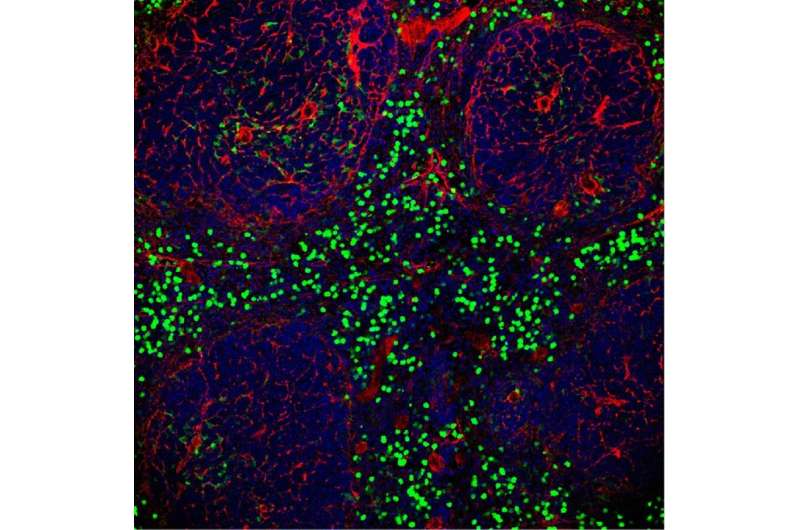Study illustrates how neutrophils contribute to healthy tissue function

The cells of the immune system sustain life by infiltrating infected and damaged tissue and eliminating pathogenic microorganisms and cell debris. However, immune action produces collateral damage that can lead to autoimmune disease or contribute to the injury associated with myocardial infarction or stroke. Now, a new study led by CNIC researcher Andrés Hidalgo and published in the Journal of Experimental Medicine shows that in addition to its defense function and the collateral damage to affected tissues, the immune system also plays an important role in the day-to-day function of healthy organs. The research results show that immune cells called neutrophils help to maintain the normal function of healthy tissues.
According to lead author Hidalgo, life is a continuous battle between organisms. Large organisms provide a nutrient-rich environment for microbes and have therefore developed an immune system to protect against infection. To be effective, the immune system needs to be toxic, but this brings with it the risk of self-damage to cells and tissues. Commenting on the implications of this situation, study author María Casanova-Acebes says, "The immune system is a two-edged sword, and the associated collateral damage can result in autoimmune diseases or the injury accompanying a myocardial infarction or stroke. One would therefore expect immune cells to be excluded from healthy tissues in order to avoid unnecessary damage."
But the present study shows that neutrophils, one of the major immune cell types, not only enter healthy tissues but also carry out a range of functions unrelated to immunity. Using imaging techniques and high-resolution analysis of the immune system in mice, the CNIC research team discovered that almost all healthy tissues are infiltrated by neutrophils, especially at night, when mice are most active. The research results show that tissues that are especially sensitive to damage, such as the brain, are usually free of these immune cells; in contrast, other tissues, such as the lungs, liver, spleen, and bone marrow, are full of neutrophils, even in good health.
Tumor metastasis
Moreover, the study shows that neutrophils perform a range of roles in several of these tissues such as the intestine and lungs. Study author José Ángel Nicolás says, "An important finding of our study is that whereas the action of neutrophils is potentially dangerous in some tissues, in others, it is beneficial—for example, maintaining the function of blood stem cells and preventing tumor metastasis in the lungs."
The study, which is the result of more than five years of research and collaboration with laboratories in Europe, Asia and the U.S., reveals that the immune system not only has a defense function that can also damage tissues, but is also important for the day-to-day function of a healthy organism. Andrés Hidalgo considers that the results emphasize the contradictions and paradoxes of biological systems, saying, "Understanding the subtleties of the immune system will be fundamental not only for disease treatment, but also for strategies to preserve health before disease develops."
More information: Maria Casanova-Acebes et al, Neutrophils instruct homeostatic and pathological states in naive tissues, The Journal of Experimental Medicine (2018). DOI: 10.1084/jem.20181468




















